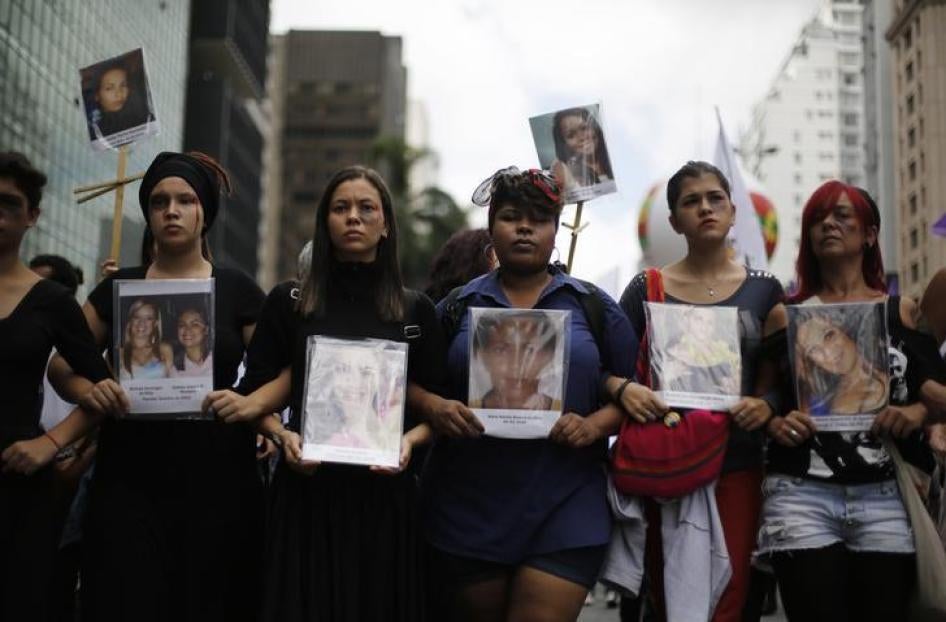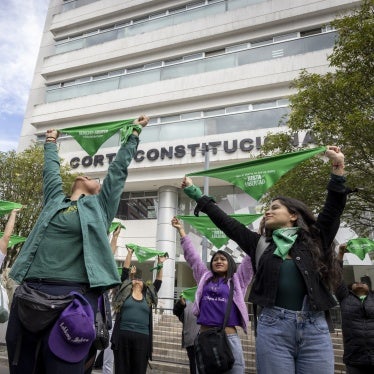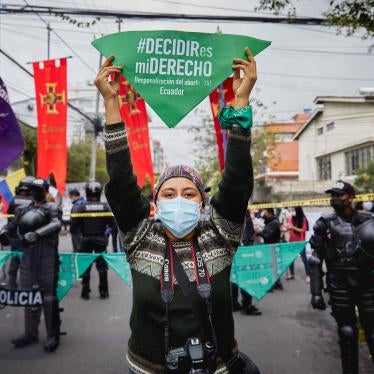Eliza Samudio was one of the 4,465 women killed in 2010 in Brazil. In October 2009, the 25-year-old had gone to police to report that her former partner had hit her, threatened to kill her if she did not have an abortion—which is illegal in Brazil—and forced her to take abortive substances.
A test of her urine from the time confirmed the presence of abortive chemicals. The problem is that it took police more than eight months after she filed the complaint to test it. By that time, Samudio was dead.
The police had requested a protective order for Samudio when she reported the incident, but it was denied by a judge from a domestic violence court. The judge contended that the law governing protective orders did not apply, because Samudio did not maintain “a stable affective relationship” with her aggressor, with whom she had only one sexual encounter.
The abortive substances, meanwhile, failed to work, and after delivering the baby in February 2010, Samudio filed a paternity lawsuit. In June, relatives and associates of her former partner kidnapped her. One of them strangled her, dismembered her, and fed parts of her body to dogs, according to testimony during a 2013 trial that resulted in the conviction of the former partner—and a sentence of more than 22 years in prison—for ordering the crime.
As gruesome as it was, Samudio’s murder might have gone unnoticed in a country where partners, former partners, or relatives kill more than 2,000 women each year. But in Samudio’s case, the man involved is Bruno Fernandes de Souza, at the time the goalkeeper and captain of Flamengo, one of the richest clubs in Brazil and the one with the largest fan base.
After Bruno—as he is known in Brazil—spent more than six years in detention, a Supreme Court justice found the appeals court was taking too long to decide the appeal. Bruno, he ruled in February, should await the decision in freedom. At age 32, Bruno walked out of prison, and Boa Esporte, a second-division team, snapped him up.
The team lost its private sponsors as a result of that decision, and the municipal government of Varginha, the small town where Boa Esporte plays, is considering whether to maintain its financial support. This week a group of women staged a protest in Varginha against Bruno’s hiring, dressed in black and with hands painted red. But some fans applauded him after his first training with the team and sought his autograph.
The uproar in Brazil has brought attention to the deadly serious problem of violence against women. The 2006 Maria da Penha law—named after a survivor of domestic violence—was a major step forward, creating a comprehensive legal framework to prevent violence or ensure justice for it.
But one in three Brazilian women suffered psychological or physical violence during the past year, according to a poll released last week: Brazil needs to do a lot more to enforce the Maria da Penha law.
Brazilian women frequently endure abuse for years before they go to a police station—and no wonder. When they finally do, they are often greeted by untrained officers who file away their statements to remain forever in oblivion. A 2013 parliamentary inquiry found unjustifiable delays in investigations of domestic violence cases, delays so long that the statute of limitations runs out and the abuser is never prosecuted.
Even for women who successfully obtain a protective order, the document is often worthless. In the vast majority of cases, nobody monitors compliance.
Brazilian authorities should expand police stations that specialize in violence against women, provide relevant training to all police officers, ensure proper investigations, and deploy patrols to guarantee that men respect protective orders.
In 2010, Bruno himself, commenting to reporters about a fight between fellow soccer player Adriano and his then fiancée, wondered “who here hasn't hit his wife?” And he added a common Brazilian saying: “No one should poke their nose into a husband-and-wife fight.”
But we all should. Violence against women shouldn’t be tolerated as a fact of life. More political will and societal rejection are needed to end it.









